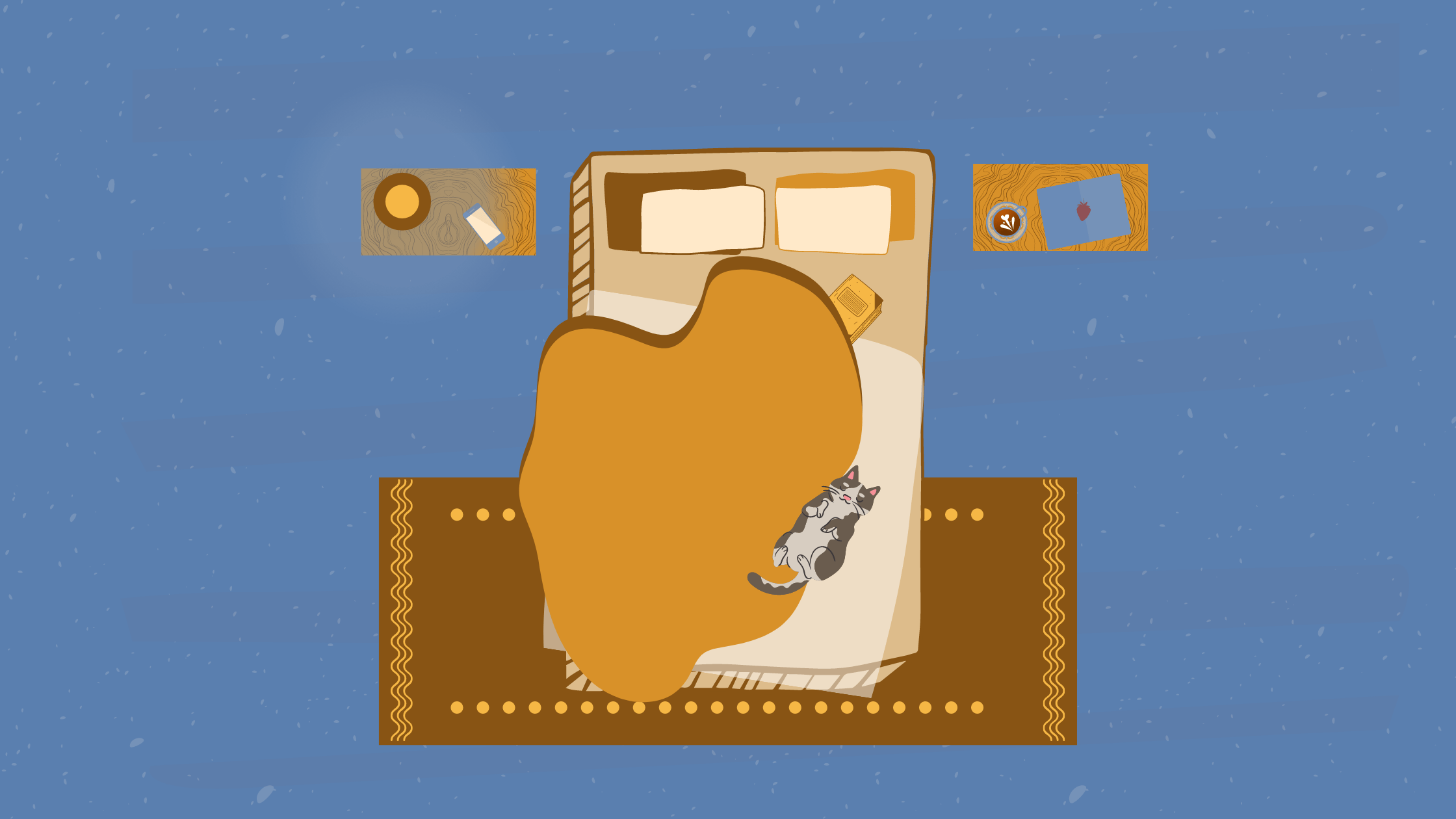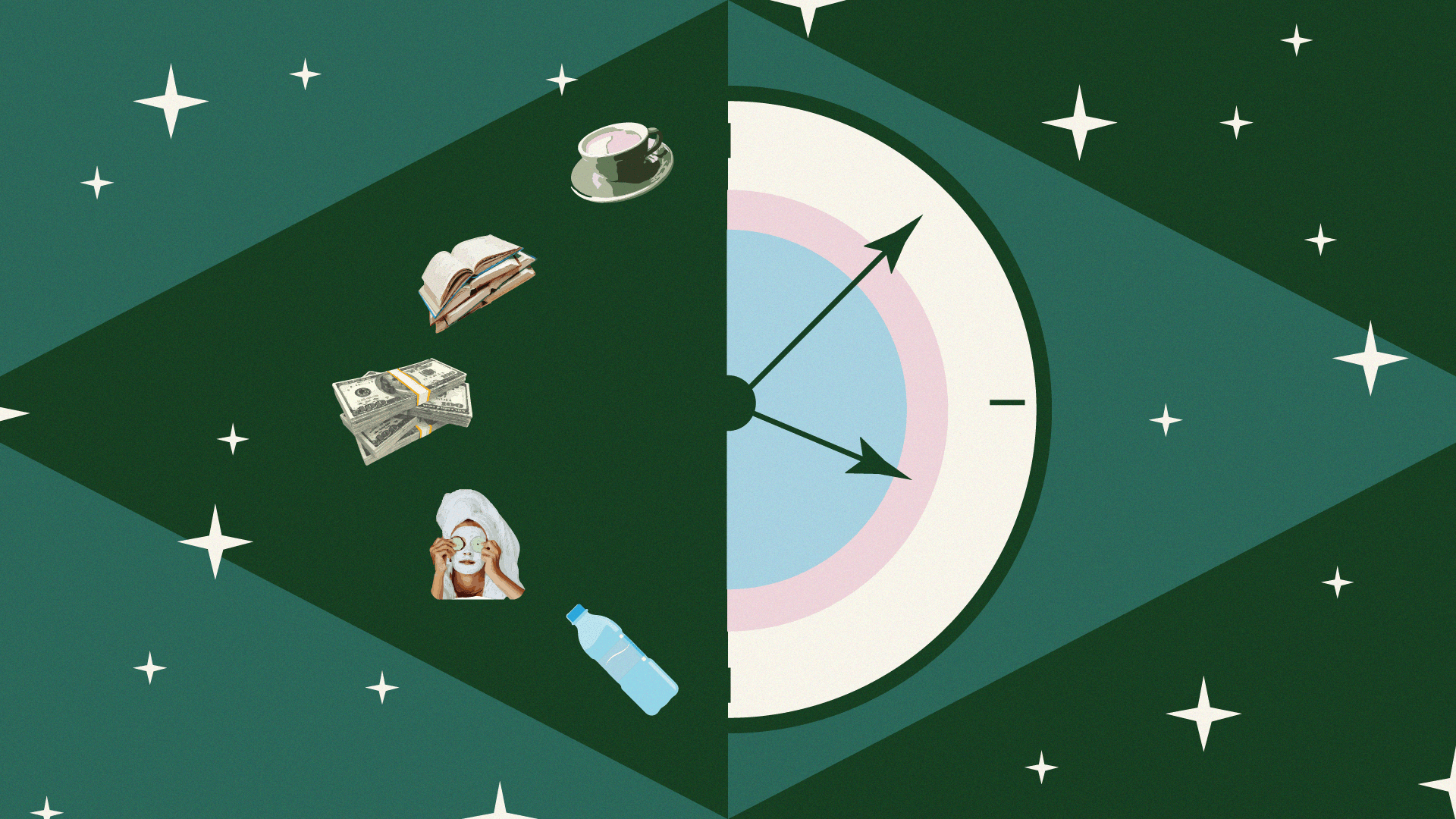
Why It’s Radical to Nap
For people of color, resting is a right and should always be a priority.
As a full-time college student involved in the media industry, I am always trying to complete homework assignments on time, meet article deadlines, and manage social media accounts all at once. In essence, I am always working. But it seems unjust for anyone to be asked to be productive during this pandemic — where any day, a loved one or friend might be lost to this illness. As we enter one year of living through coronavirus, I’ve realized how resting is a radical form of resistance for people of color against the backdrop of being forced to be productive.
I can’t remember when I started taking naps, but since then, I have dedicated unapologetic time to sleep and rest. During the day, whenever I need to disengage from my to-do list and Zoom, I curl up next to my cat, Pinky, and take a nap. For 25 to 30 minutes, my life is not tethered to all the responsibilities I juggle. Instead, I’m resting.
This idea of rest — especially resting by napping — was something I thought I shouldn’t do growing up. My parents’ marginalized status in the U.S. hindered their ability to rest. To them, resting was always in the periphery of their mind. “I’ll get to it later,” they’d say, but they never actually did. That same mentality was passed down to me. Being surrounded by very few Latine people at a predominantly white high school made me feel insecure and ate away at my self-esteem. I thought the solution was to engage in a toxic relationship with productivity — where the only way I could ever deserve to rest was to check-off as many things on my to-do list and prove my worth to my white peers.
Similarly, after arriving at NYU, I remember feeling pressured to be extremely productive. Whenever I met other students, they would always introduce themselves to me saying, “Hello, I do this, this, and that, and also work here and might be starting a gig here,” as if I had to aspire to be that busy. Don’t get me wrong, I’m not knocking on those busy bodies who truly enjoy filling their calendars with endless activities and tasks. But hustle culture forces everyone who is not like them to resist the idea of rest and continues to perpetuate a toxic productivity mindset. Both of these cultures are rooted in capitalism where this structure has denied people of color the right to rest and make them fight for it instead.
Two years ago, my sister mentioned on a phone call that I should read the book How to Do Nothing: Resisting the Attention Economy by author Jenny Odell. I wasn’t sure if I could trust her recommendation. “Doing nothing? No. I could never do that,” I thought. But I missed Odell’s point. Doing nothing is about diverting our attention away from the endless to-do lists and tasks that demand we be productive. I didn’t know it at the time, but napping was the “doing nothing” Odell was talking about.
Likewise, organizations and art projects like the Nap Ministry and Black Power Naps work to empower Black people and other people of color to not only normalize the need to rest but present it as a radical form of resistance. For people of color, the reality is that we don’t get enough rest. In 2015, a study published in the journal Sleep found that Black participants were five times more likely to get short sleep than white participants. Additionally, Latine participants were 1.8 times more likely to get short sleep. The National Foundation of Sleep says that sleep is critical to our health and wellness, plays an important role in our emotional health, and is vital for our memory, attention, and cognitive function.
When we don’t rest, we don’t give ourselves the opportunity to restore our health and well-being in ways that will help us stay grounded in our bodies. The pandemic only compounds this reality more. Research has shown that communities of color across the country are disproportionately affected by COVID-19. But it’s not just the virus that’s impacting our well-being. Our mental health is suffering as well. In a report released last June by the Centers for Disease Control and Prevention found that Black and Latine people in all age groups reported increased levels of anxiety, depression, and suicidal thoughts related to the effects COVID-19 has had on our society. For people of color, being productive shouldn’t be a priority right now. It definitely isn’t for me.
We need to rest. Our bodies have long been exploited by capitalism and white supremacy, something that continues to happen today. I worried that when I took naps, it would be futile when my time could be spent working toward disrupting these oppressive systems that demand my productivity. But Tricia Hersey, founder of Nap Ministry, believes that by resting, we are disrupting exploitation. When we rest we reclaim our bodies for ourselves.
So much of our lives have changed while living in a pandemic. But one thing that won’t change is my belief that I deserve to rest. Resting is necessary, especially to disengage from the ruthless expectations of capitalism. So I indulge in napping because it means that I am simply choosing to listen to my body when it signals me to pause.


